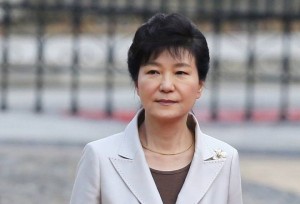
Park Geun-hye
SEOUL— First it was the ferry sinking, a subject that a year later still haunts Park Geun-hye’s presidency: Demonstrators rampaged through Seoul over the weekend, accusing Park of not addressing the alleged corruption and incompetence that cost South Korea 304 lives, mostly children.
Then another bombshell: Park’s prime minister, Lee Wan Koo, offered to resign Monday over allegations by a disgraced businessman who died in an apparent suicide that Lee had been bribed, the latest in a string of officials linked to the president who have faced ethics questions.
It’s safe to say that Park has had better weeks. And it’s only Tuesday.
With Park’s popularity plummeting and parliamentary and local elections looming, there are growing doubts about her ability to pursue, during her remaining three years in office, the ambitious goals she once voiced. They include reaching out to rival North Korea, balancing economic and diplomatic ties with China, Japan and the United States, and closing the huge gaps here between rich and poor, men and women, old and young, city and countryside.
Park, just by way of her lineage, was already a divisive figure when she was elected in late 2012, becoming the country’s first female president. She’s the daughter of the former dictator Park Chung-hee, whose 18-year rule, which ended with his 1979 assassination, continues to split South Korea.
Critics say he tortured and murdered opponents before tearing up the constitution to give himself virtually unlimited power. His supporters, many of whom form his daughter’s conservative political base, say his firm hand started the country’s transformation from the wreckage of the 1950-53 Korean War into what’s become Asia’s fourth-biggest economy.
His daughter beat liberal opponent Moon Jae-in handily and took office in early 2013, but she has been battered regularly ever since.